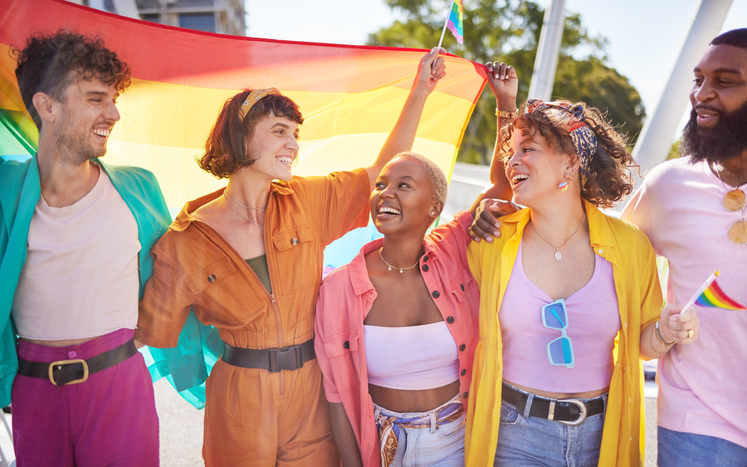LGBTQIA+ in the workplace; how to foster a culture of inclusion at work

Authored by ARAG
Inclusion is the practice or policy of providing equal access to opportunities and resources for people who might otherwise be excluded or marginalised, such as those who have physical or intellectual disabilities and members of other minority groups. With inclusion as an objective, you are much more likely to see greater diversity in the workforce, fair treatment and greater equality of opportunities.
Over a third of LGBTQ+ people still feel they must hide who they are at work, that is according to Stonewall, 2018. Here are five simple ways to become an ally to the LGBTQIA+ community in the workplace… LGBTQIA+ in the workplace; how to foster a culture of inclusion at work
1. Be honest and accountable
No one is expecting you to be an expert here, so be honest with your colleagues and admit when you’ve previously made mistakes or when you don’t understand something. Others will almost certainly be in the same boat and appreciate your honesty. Wanting to learn, educate and grow through open communication is appreciated and shows that you are truly looking to be an ally.
2. Be open to learning, and relearning
Remain open to continually learning what it means to be an ally to LGBTQIA+ people in the workplace. This includes listening, being honest and speaking out. Take time to familiarise yourself with LGBTQIA+ inclusive language, learn and understand the different terminologies and use gender-neutral language.
3. Be an advocate in the workplace
Advocate for an inclusive environment by encouraging others to do the same. Likewise, try to pick up on potentially derogatory language. Reach out and encourage colleagues including senior leaders to be vocal champions for inclusion and celebrate this within your workplace.
4. Listen to others
Take a step back and ensure you’re centring the voices of LGBTQIA+ people. It’s important for allies to use their voice to stand in solidarity, but it’s equally important to know when not to take up space. The more we listen, the more we’ll understand.
5. Practice ally-ship all year round
While June is Pride Month, LGBTQIA+ people face stigma, discrimination and oppression 365 days per year. Ensure your allyship extends throughout the entire year. You can continue to support your colleagues and educate yourself no matter what. Everyone deserves to, and needs to be at the table.
Maureen Colquhoun
The first Member of Parliament (MP) to be openly gay was a woman. Although Maureen was married to a man when initially elected, she ended up moving to London with her female partner in 1976. At present, 60 MP’s are said to openly identify as LGBTQ+.
Justin Fashanu
The first Black footballer in Britain to achieve a £1 million transfer fee when he signed for Nottingham Forest in 1981. Nine years later came an even more seminal milestone, when Fashanu became the first professional footballer to come out as gay.
Lady Phyll
Phyllis Opoku-Gyimah, aka ‘Lady Phyll’, is a key figure when it comes to the intersectionality of LGBTQ+ and Black Lives Matter activism. She is the co-founder of UK Black Pride, a movement dedicated to LGBTQ+ people of African, Asian, Caribbean, Latin American and Middle Eastern descent
To find out more CLICK HERE





